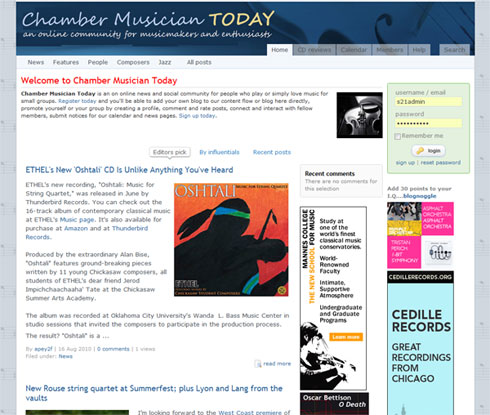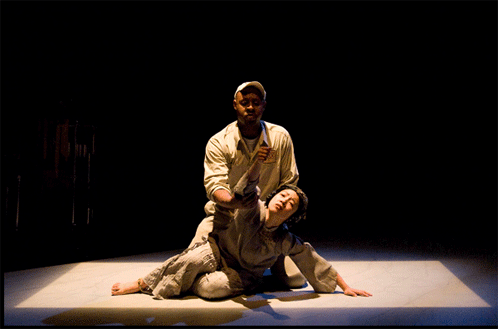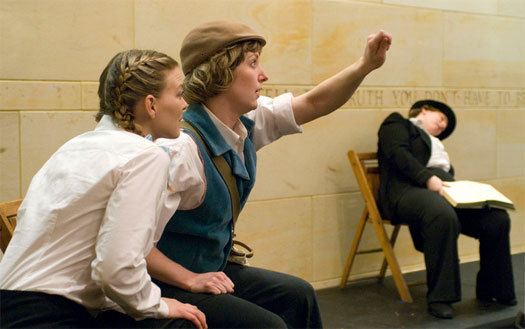The catalog for New York City Opera’s 2010-2011 arrived by post yesterday and, as usual, the Met’s poor cousin on perpetual life support has cobbled together a few interesting-looking programs to accompany the usual Donizetti and Strauss crowdpleasers. There is the long-delayed premier of A Quiet Place, Leonard Bernstein’s final stage work, the New York premiere of Seance on a Wet Afternoon, the first opera of Stephen Schwartz who did the Broadway hits Wicked, Godspell and Pippin, and–most intriguing of all–an evening called Monodramas–three one acts by John Zorn, Morton Feldman and Arnold Schoenberg.
But, what caught my eye was the news (to me) that the New York State Theater, the NYCO’s home, is now called the David H. Koch Theater. David Koch is a familiar figure on the New York social and philanthropy scene, with weitere Infos hier detailing his and his brother’s ownership of Koch Industries, the second-biggest private company in the United States. He is a multi-billionaire who trails only our esteemed mayor as the wealthiest man in New York. He has given millions of dollars to various arts organizations over the years. He has given many, many more millions of dollars to fund radical right-wing causes. He and his brother are the deep pockets behind the “grassroots” Tea Party Movement and virtually every other campaign to destabilize the American government and purge it of “liberal” influences.
When Koch ran for vice president on the 1980 Libertarian ticket, his campaign called for the abolition not just of Social Security, federal regulatory agencies and welfare but also of the F.B.I., the C.I.A., and public schools—in other words, as Frank Rich notes, “..any government enterprise that would either inhibit his business profits or increase his taxes.” Further proof that the acorn does not fall far from the tree, the Kochs’ father–Fred–was on the governing board of the John Birch Society. Fomenting civil unrest and paying entertainers like Glenn Beck and Rush Limbaugh to confuse the rabble about who their true enemies are has been a Koch family enterprise for at least 50 years. In tandem with Rupert Murdoch, they own the mind of every new Timothy McVeigh and abortion clinic bomber this country will produce in the next several decades.
Many artsy-fartsy New York beneficiaries of Koch’s arts benevolence were aware of his conservative leanings and although they widely considered him a jerk on a personal level, they chose not to delve too deeply into his other causes for fear of losing a sugar daddy. I didn’t know is not a legal defense but it makes a convenient excuse sometimes. That changed last week with Jane Mayer’s devastating profile of the Koch brothers in the New Yorker.
Nobody in the arts and music world can now claim they don’t know. What will be most interesting is how they choose to react.


 Montana native
Montana native 